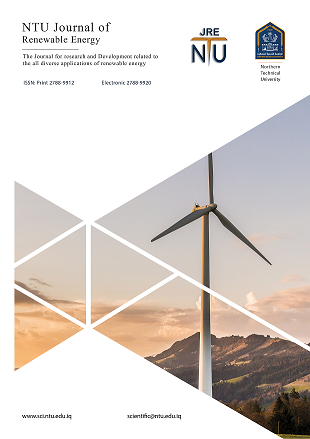Load Frequency Control With Renewable Energy Sources Using Practical Swarm Optimization Based On PID
DOI:
https://doi.org/10.56286/ntujre.v5i1.563Abstract
Future competitive solutions for the production of electricity may be provided by emerging renewable energy sources (RESs) technologies as wind, solar photovoltaic, and solar thermal power systems. In this study, simulation tests have been conducted on autonomous hybrid generating systems(HGSs) made up of diesel engine generators (Degs), fuel cells (FCs), wind turbine generators (Wpg), solar photovoltaic generators (Pvpg), battery energy storage systems (Bess), and flywheels (Fess). The abrupt fluctuations in load, generation, or both cause the power system's frequency to vary. PID controller tuning using particle swarm optimization (PSO) is used for the optimization of controllers’ gains of the proposed hybrid systems. The proposed method is compared with a genetic algorithm (GA) and a traditional PID controller. To test the proposed controller, three different scenarios were used: first, changing the load's value with a fixed value over a set period of time; second, changing the load's value with variable values; and third, changing the load's value with a variable value while changing the system parameters. The simulation results reveal that the suggested controller performs better and is more resilient against load and generational disruptions by reducing the maximum overshoot value and settling time by 70% and 65%, respectively, and by 14.2% and 5% when compared to a GA-PID control.
Downloads
Published
Issue
Section
License
Copyright (c) 2023

This work is licensed under a Creative Commons Attribution 4.0 International License.
© THIS IS AN OPEN ACCESS ARTICLE UNDER THE CC BY LICENSE. http://creativecommons.org/licenses/by/4.0/








